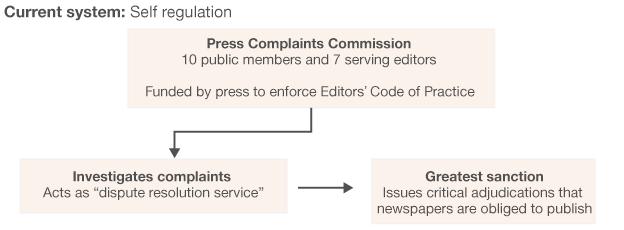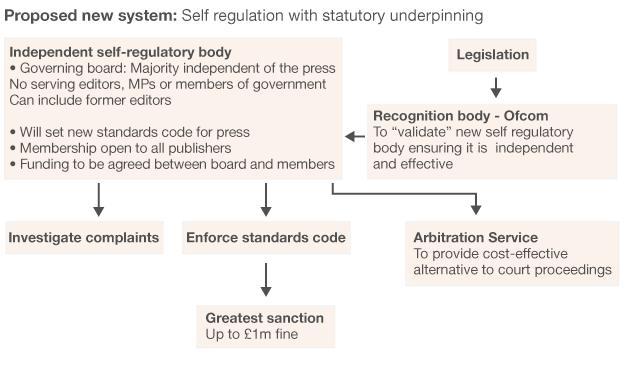Leveson: New regulator proposed
- Published
Lord Justice Leveson has proposed a new style of regulator for the press. Independent of editors, government and business it would be able to impose fines of up to £1m.
This is an outline of how the proposed body would work and how it compares with the current press regulator, the Press Complaints Commission which is to be disbanded.
PRESS COMPLAINTS COMMISSION

At present the Press Complaints Commission regulates the press, but its greatest sanction is to name and shame publications by issuing critical adjudications.
LEVESON'S PROPOSAL

Lord Leveson's proposed model would have "statutory underpinning" meaning that legislation would be put in place to make sure it remained independent and effective.
A "recognition body" such as Ofcom - the communications regulator - would be given responsibility for overseeing this.
Unlike the PCC, the board of the new self-regulatory body would not include any serving editors. MPs and members of the government would also be banned.
The board would draw up a new standards code, breach of which could result in a fine of up to one per cent of a publication's turnover, with a limit of £1m.
As with the PCC, individuals would be able to complain without having to pay a fee. Besides fines, remedies would include publication of corrections and apologies.
Lord Leveson's proposals also aim to relieve some of the financial burden on the press. An arbitration service would offer a low-cost alternative to legal settlement of issues.
However, this would only be open to publications who were members of the new body. Lord Leveson said non-members may face steep costs and "exemplary damages" in the courts.